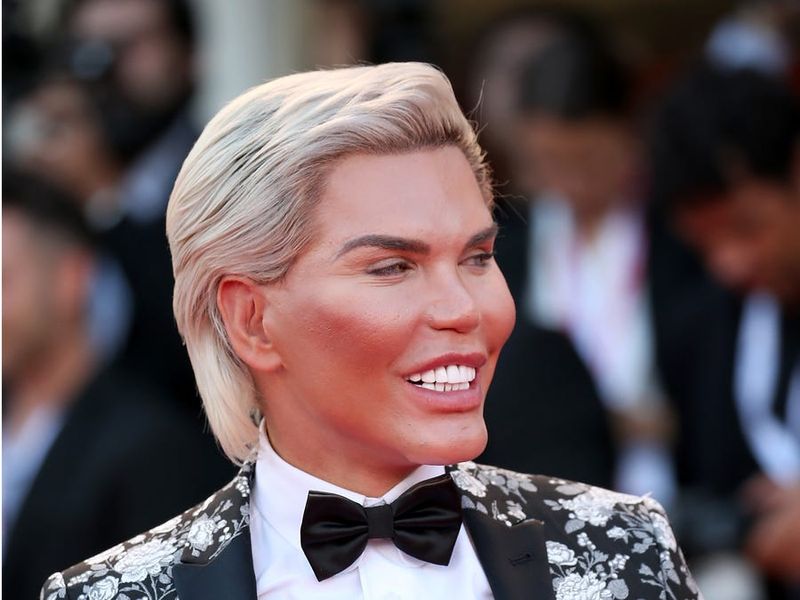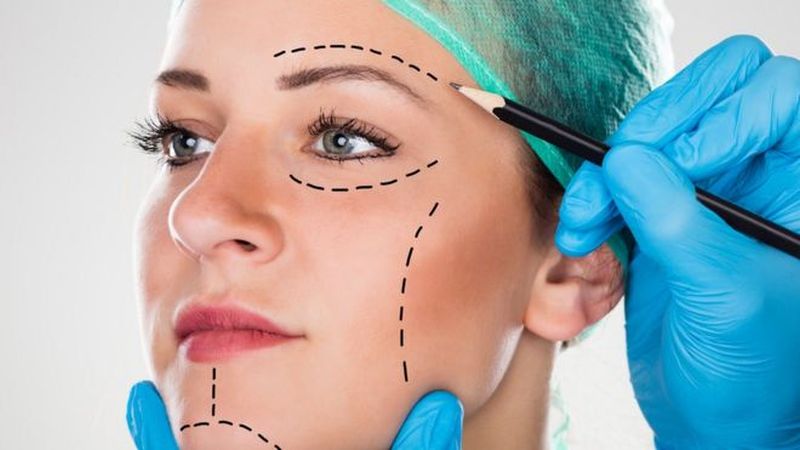The terms plastic surgery and cosmetic surgery or the identifiers “plastic surgeon” and “cosmetic surgeon” can be confusing to differentiate for the general public. Plastic surgery refers to a wide range of operations all over the body. It includes surgery for cosmetic purposes, burns, pediatrics, microsurgery, craniofacial surgery and many reconstructive procedures for birth-related issues or from trauma or as a result of cancer surgery. Cosmetic surgery is defined as surgery to reshape or change the appearance of an area of the body.
References to plastic surgery procedures have been found in manuscripts from some of the earliest written records. One of the earliest procedures documented was the repair of a broken nose in an Egyptian medical text. Over the years human history has been filled with horrific injuries as a result of wars and conflict. Physicians and surgeons have had a steady stream of patients requiring plastic surgery.

A sometimes-overlooked fact is that the father of plastic surgery is considered to be Sir Harold Gilles, a New Zealand ENT specialist. Gilles was working in London during the first world war and encountered soldiers with horrific facial war injuries. He initially specialised in the repair of facial injuries but went on to develop many founding plastic surgery techniques that were useful all over the body. His work continued through his private practice and through the second world war. In his private practice he also pioneered the first gender reassignment surgeries, which became the standard for the next 40 years.
According to Dr Kien Ha, modern-day plastic surgeons typically include a very wide range of operations in their skillset. These include surgery for aesthetics (cosmetic surgery), burns, craniofacial issues (including cleft lip and palate and skull shape issues), hand surgery, paediatrics, microsurgery and reconstruction for parts of the whole body. Plastic surgeons themselves tend to focus on the whole-of-body in relation to the range of cosmetic surgeries they perform.

Cosmetic surgery is not only performed by plastic surgeons. Otolaryngology surgeons (ENT Specialists) often perform facelifts, necklifts, rhinoplasty, browlifts, otoplasty and blepharoplasty (eyelid lifts) given that they exclusively operate on the face and head. Dr Jason Roth is an ENT Specialist Head and Neck Surgeon based in Sydney, Australia who specialises in rhinoplasty and facelift surgery, often in combination with necklift surgery. He performs over 150 rhinoplasty operations per year and over 300 nasal surgery operations per year. You can view his rhinoplasty surgery results here.
Ophthalmologists (eye specialists) often perform blepharoplasties and browlifts. General practitioners and other types of surgeons may often undertake specific cosmetic surgery training in particular procedures such as thread lifts, facial implants, breast implant surgery, genital surgery or otoplasty. Dermatologists and maxillofacial surgeons also frequently perform cosmetic surgery.

Plastic surgery is also not only performed by plastic surgeons. Many otolaryngology surgeons perform reconstructive procedures including microvascular free flaps, skin flaps after removing skin cancers and nose reconstruction after cancer or trauma. Ophthalmologists often specialise in the removal of skin cancers around the eyes and will perform the necessary plastic surgery to reconstruct these. Many general practitioners and dermatologists will also specialise in the removal of skin cancers and perform plastic surgery to reconstruct the defects after these are removed.
Sometimes board-certified plastic surgeons in the United States, Australia, New Zealand or the UK will claim that they are the only type of surgeons who are trained to perform plastic surgery. Often the marketing companies that surgeons will employ will attempt to use this as a way to differentiate one surgeon from another for the purpose of generating patient referrals.
Plastic surgery is a core part of many specialist training programs, not just plastic surgery. In otolaryngology (ENT) training in Australia, there are generally 6 parts to the curriculum – otology (ears), rhinology (nose), laryngology (voice), head and neck (benign and malignant tumour work), paediatrics and facial plastic surgery (includes cosmetic and reconstructive procedures). Ophthalmology training includes core modules in facial plastic surgery of the eyelids and brow. The main factor that statistically differentiates the ability of the surgeon and their surgical outcomes is an experience – patient case volumes performing a specific procedure.
The term “facial plastic surgeon” is often used by otolaryngology specialists across the world who specialise in plastic surgery of the face rather than being general otolaryngologists. This term is used along the same lines as otolaryngology specialists who specialise in one of the other 6 subspecialties of otolaryngologists – rhinologists (nose specialists), otologists (ear specialists), head and neck surgeons, etc.
The American Academy of Facial Plastic Surgery is an important body that supports facial plastic surgeons across the world and organises many academic meetings and a monthly journal. The European Academy of Facial Plastic Surgery is a similar body. The Australian Academy of Facial Plastic Surgery supports Australian and New Zealand surgeons who perform facial plastic surgery.

The International Board Certification in Facial Plastic Surgery is an important certification process involving keeping a logbook of facial plastic surgery cases over a number of years and then undertaking a series of written and spoken examinations held in the United States. Candidates who complete this certification are awarded the IBCFPS accreditation (International Board Certification in Facial Plastic Surgery).
The growth in the interest in facial plastic surgery across many specialties has led to enormous growth in research and the development and refinement of many new techniques since World War 1. Surgeons from various specialty backgrounds can shed new light on older techniques leading to innovation and refinement. A facial plastic surgery conference may include speakers who are dermatologists, otolaryngologists, maxillofacial specialists, plastic surgeons and ophthalmologists all in the same session or panel.

Interest in cosmetic surgery and cosmetic procedures by the general public increases every year. This has driven demand for more doctors who can provide this service. For the most part, this has led to improved outcomes for patients. There is often sufficient work for surgeons to specialise primarily in cosmetic work, sometimes in just one part of the body (eg: rhinoplasty, breast surgery, eyelid surgery) which grants the surgeon further mastery from case volume experience.
Unfortunately, there are occasionally doctors who are poorly or insufficiently trained in plastic surgery who will attempt cosmetic procedures and obtain sub-optimal outcomes. One way for patients to compare surgeons is to look to ensure they have undertaken a proper training fellowship through one of the national colleges (Royal College of Surgeons, Dermatologists, Ophthalmologists or Board Certification in the USA). Attendance at a week-long course or undertaking “observerships” (where a doctor simply observes another surgeon’s techniques) are not substitutes for a proper fellowship, which often takes 4-6 years to complete.

Both cosmetic surgery and plastic surgery will continue to be popular types of surgery for many years to come. Surgeons from a number of different training backgrounds will continue to perform these types of operations and some will have particular expertise in a specific procedure through enjoying high patient volumes. Despite many techniques being shared across operations, it is likely that over their careers, surgeons will sub-specialize in a small number of the huge number of operations that are included within cosmetic and plastic surgery.


